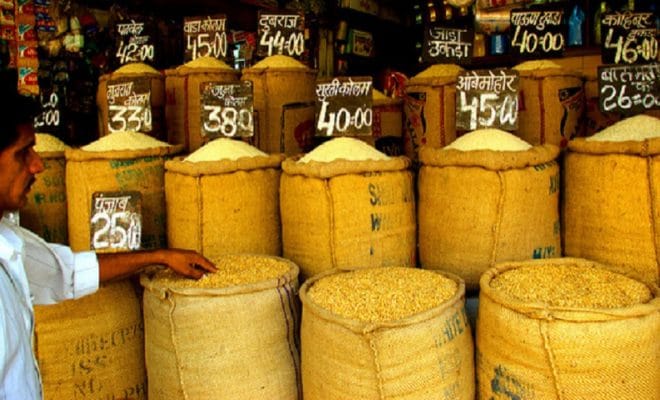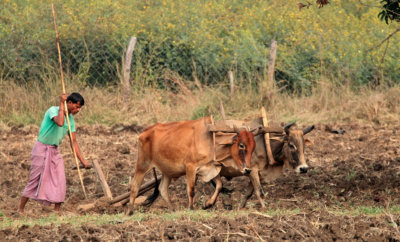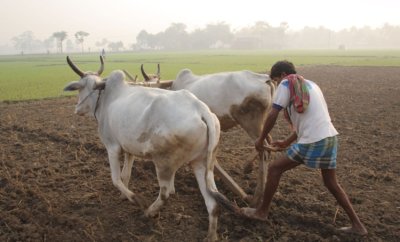Business
WTO Food Stockpile Issue: India ‘Surprised, Disappointed’ at U.S. Comments

Representational Image
Flickr
The United States said that a few countries cannot seek differential treatment under World Trade Organization rules.
India responded to United States’ jibe at the ongoing 11th ministerial conference (MC11) of World Trade Organization, saying it is “surprised and deeply disappointed” at America’s position on the matter of stockpiling food.
The official statement said, “India is surprised and deeply disappointed that despite an overwhelming majority of members reiterating it (permanent solution to stockpiling), a major member country has reneged on a commitment made two years ago to deliver a solution of critical importance for addressing hunger in some of the poorest countries of the world.”
The statement said, “…A major country stated categorically that they cannot agree to any permanent solution on the public stockholding at MC11. This has posed a severe threat to a successful conclusion of the conference as there was a ministerial for mandate for a permanent solution by the MC11.”
India’s response was in answer to United States Trade Representative Robert Lighthizer in Buenos Aires who said, “We cannot sustain a situation in which new rules can only apply to the few, and that others will be given a pass in the name of self-proclaimed development status.”
He added: “There is something wrong, in our view, when five of the six richest countries in the world presently claim developing country status.”
Commerce and Industry Minister Suresh Prabhu said on Dec. 11 that public stockpiling is a matter of survival for 800 million hungry and undernourished people in the world.
In 2013, the WTO members agreed on the Peace Clause, falling short of finding a permanent solution. India wants to increase its stockpile, which it is currently unable to do due to WTO rules. According to the agreement, members of WTO will not challenge any developing country that goes beyond the ceiling cap at the dispute settlement forum until 2017, and they will work towards finding a permanent solution.
Subsidies are allowed for food security programs through price support and public stockholding if the stocks are acquired to support low income and resource poor producers. However, WTO allows the subsides only as long as total domestic agricultural subsidies by developing countries do not exceed 10 per cent of the total agricultural output.
In 2013, G-33 countries, including India, sought to be excluded from the 10 per cent cap. The issue only got worse when India ensured that 2/3rd population of the country would get subsidized staple food as part of the National Food Security Act. India has been pushing for relaxed norms for them and other developing nations but there seems to be no solution in sight yet.
Prabhu argued that while India’s rate of growth of GDP was high, there were still 600 million poor people who need the food security program to be in place.
Minister @sureshpprabhu deserves gratitude for indicating at #BuenosAires #WTO that there’s no compromise on #foodsecurity. WTO exists to promote free & fair trade. “Fair” should include protection of livelihood & food security of our majority who depend on farming #IndiaAtWTO
— M S Swaminathan (@msswaminathan) December 12, 2017



